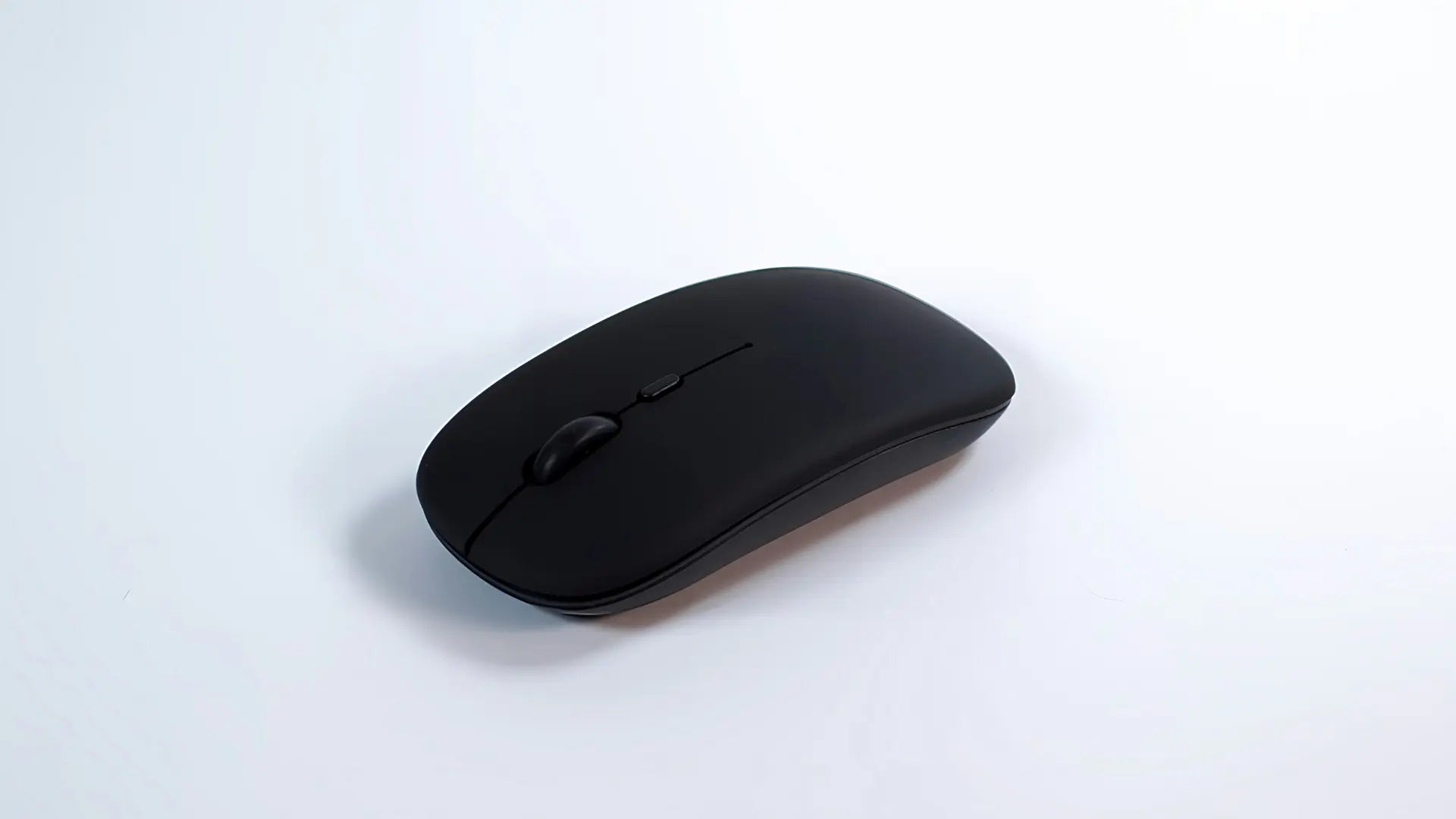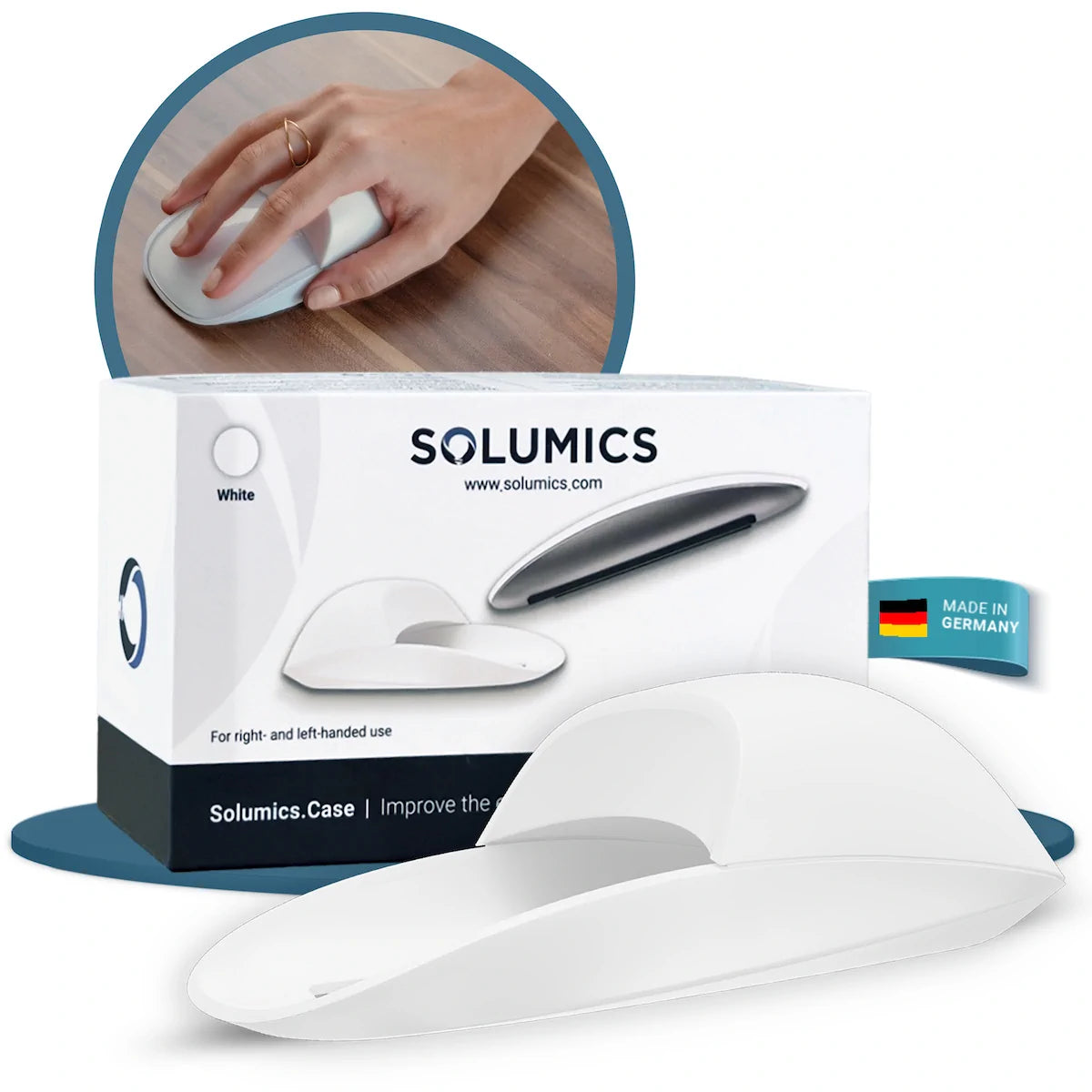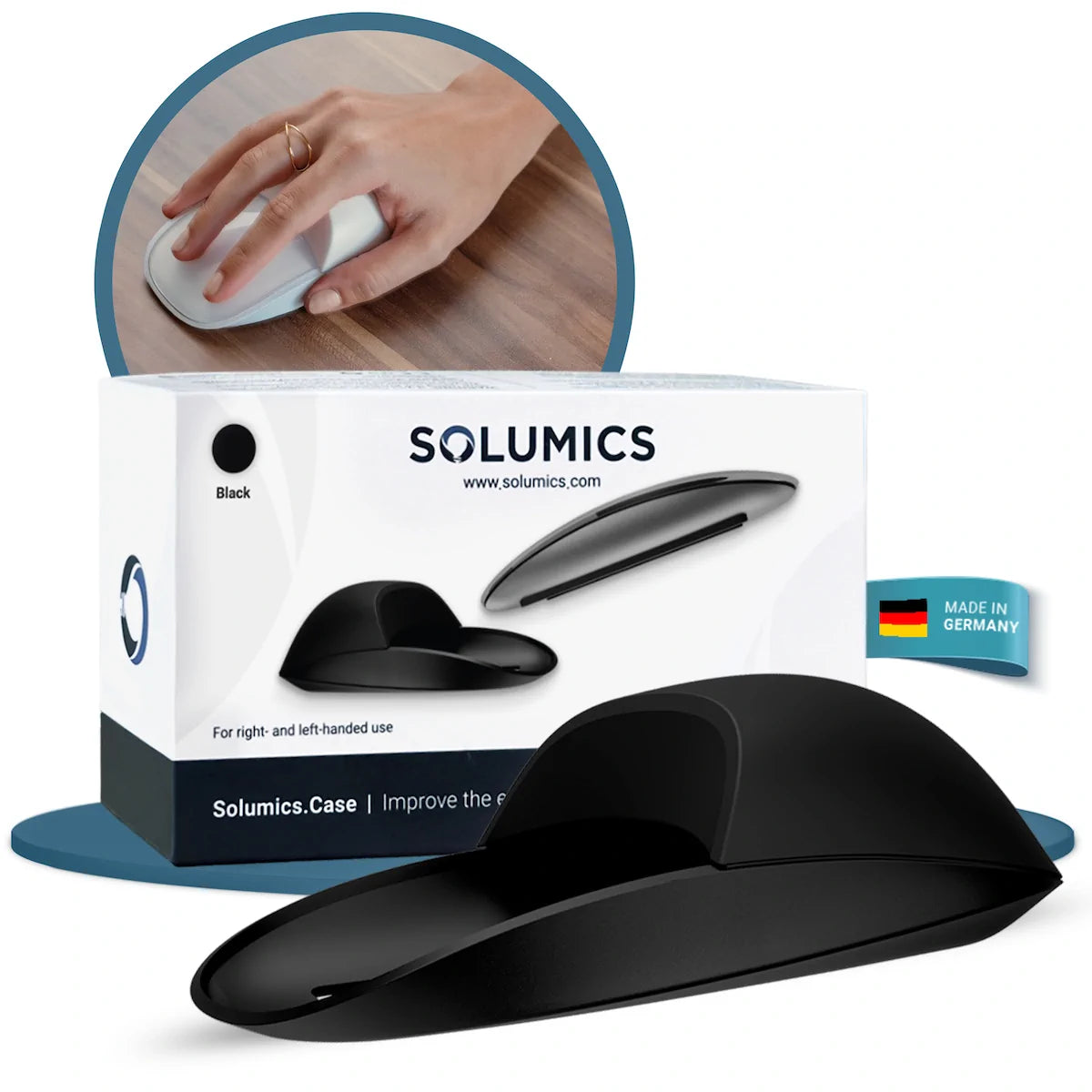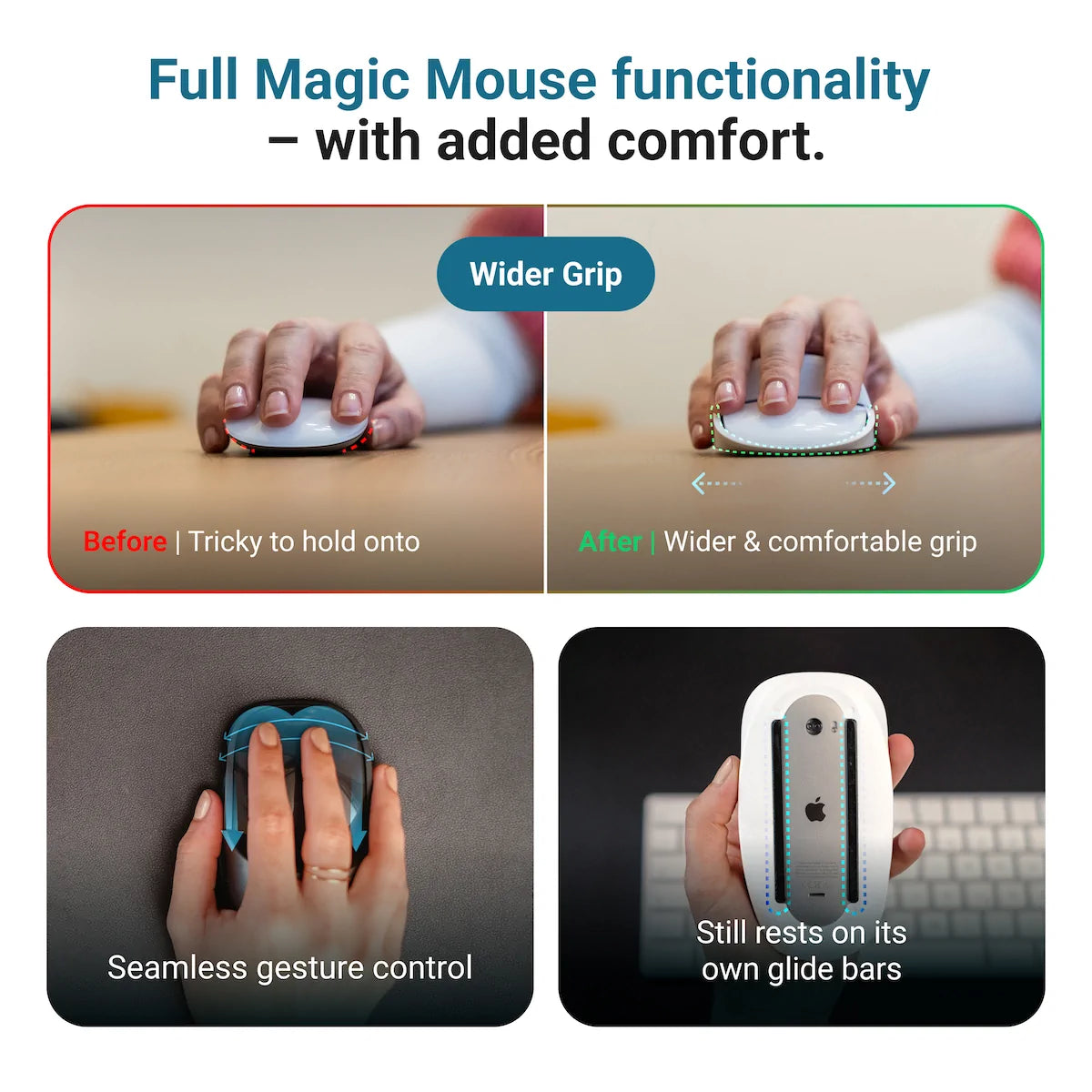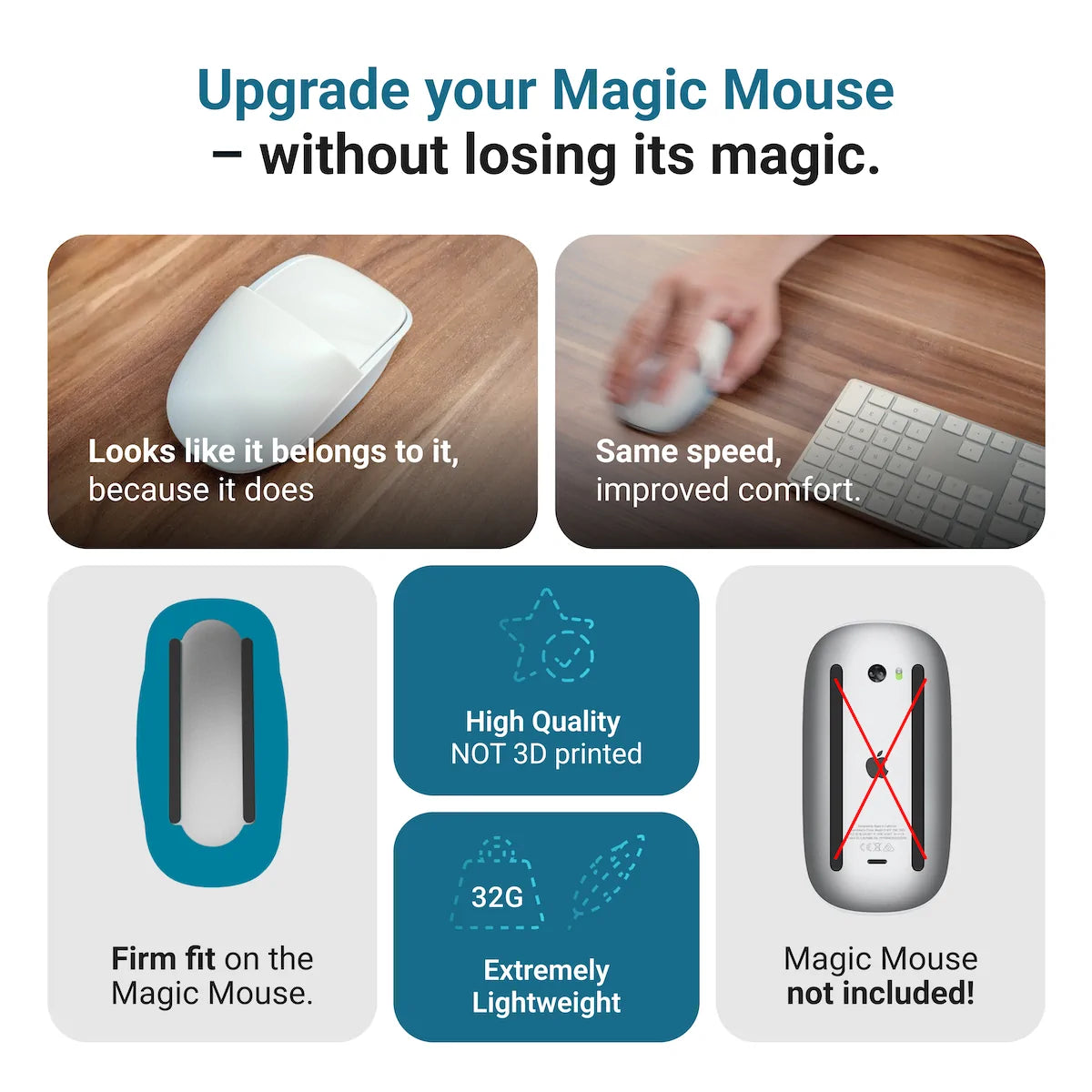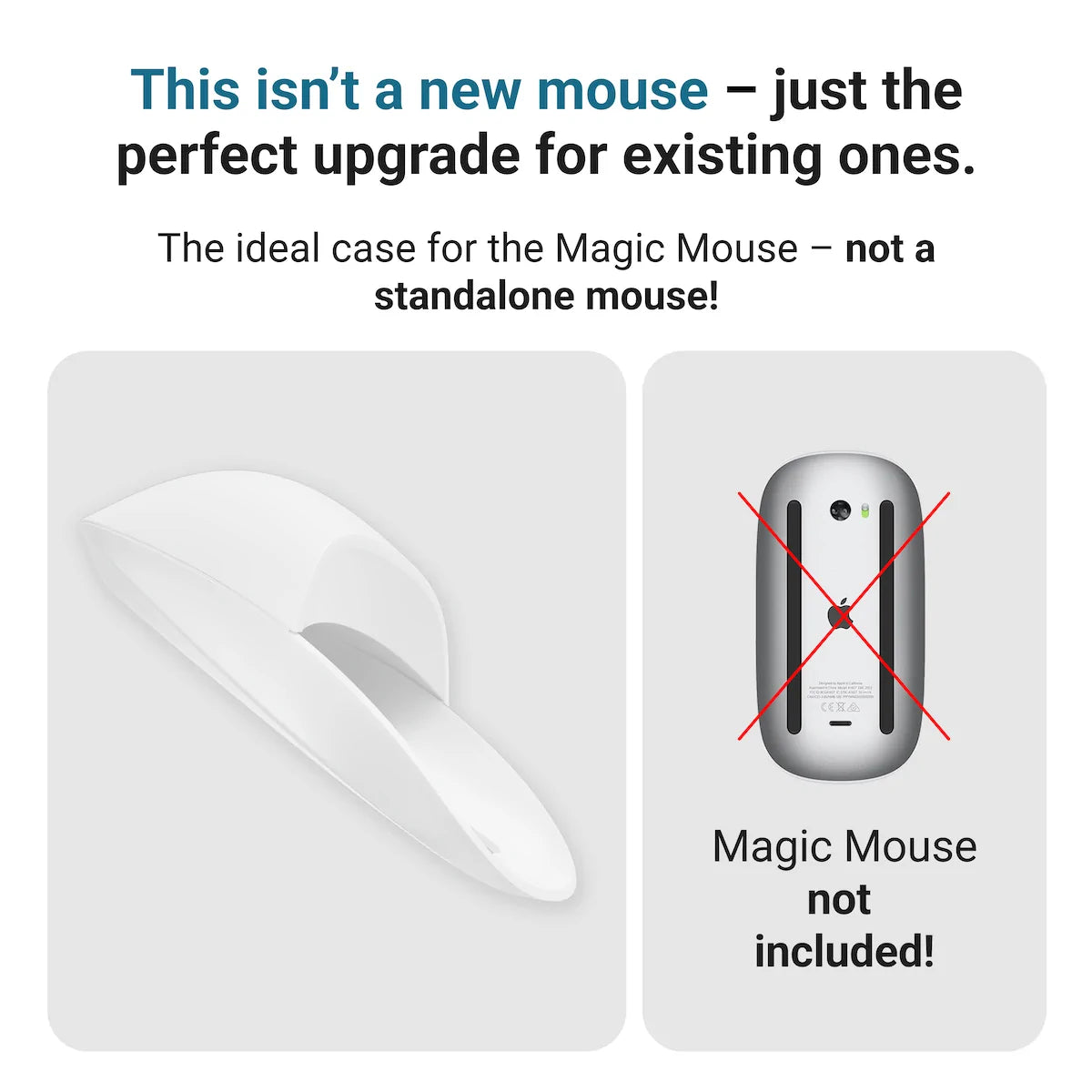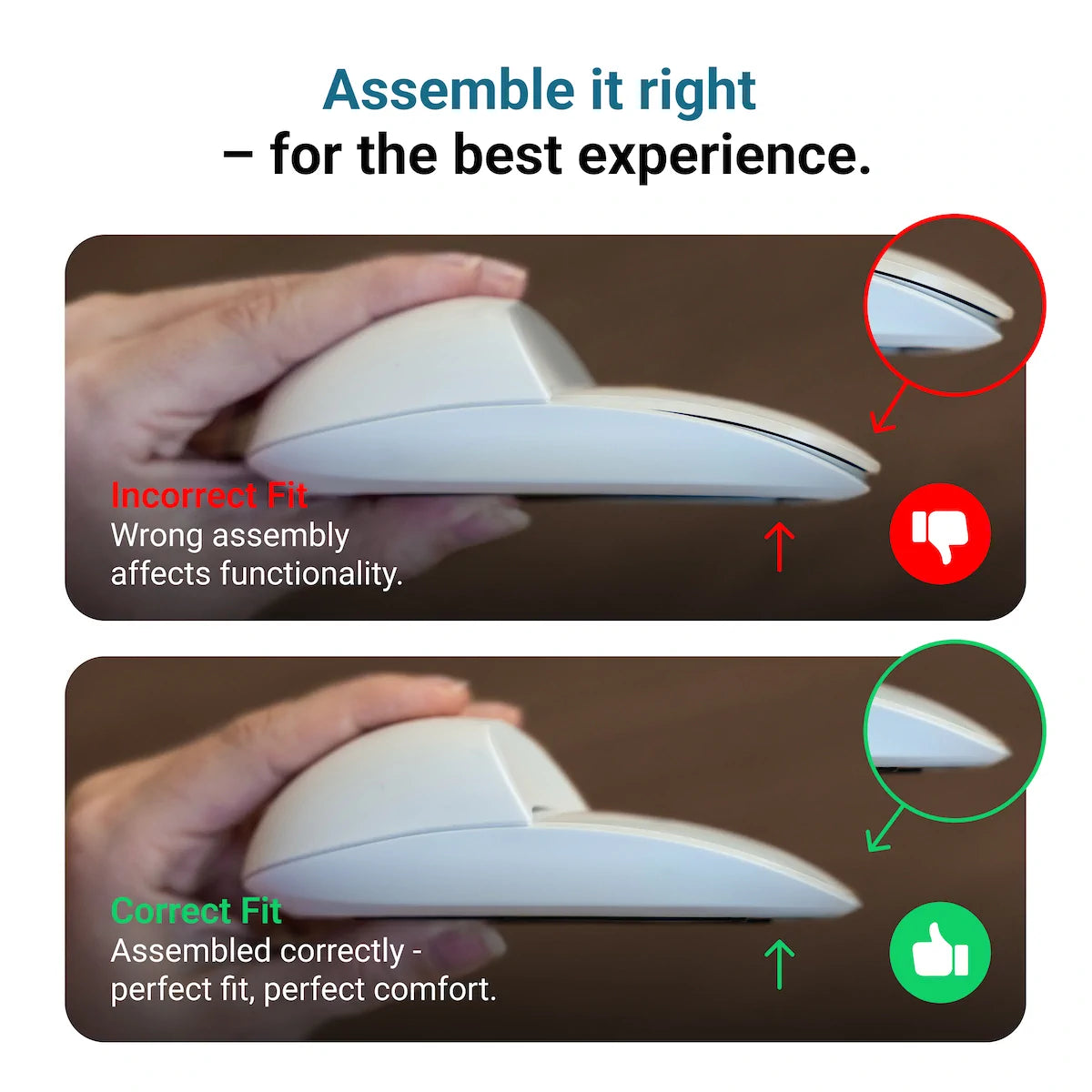Need help on how to use a Magic Mouse? Discover Apple’s must-know setup and features in this article, covering the basics from setup to customization, ensuring you get the most out of your device.
Key Takeaways
- Setting up your Magic Mouse is simple: just power it on, pair it via Bluetooth or USB, and you’re good to go.
- For more comfort during long use, consider getting the Solumics Case, which enhances grip and reduces fatigue.
- Customize your Magic Mouse settings through System Preferences to adjust tracking speed, enable secondary click, and personalize gestures for better workflow.
Setting Up Your Apple Magic Mouse

Getting started with your Apple Magic Mouse is a breeze. First, you need to power it on by sliding the on/off switch on the bottom until you see green. If you have a first-generation Magic Mouse, the LED will start blinking to indicate that it’s ready to pair. For the Magic Mouse 2, there’s no light, but don’t worry; it’s working just the same.

If you prefer a wired connection, you can use either a USB-C to Lightning cable or a Lightning to USB cable to connect the Magic Mouse to your Mac. This method not only charges the mouse but also pairs it automatically. And if your Magic Mouse came with a new Mac, it’s likely pre-synced and ready to go as soon as you power it on. With these simple steps, you’ll be up and running in no time.
Once your Magic Mouse is connected, give it a test run. Move it around to see how it responds, and make sure it’s functioning correctly. If everything checks out, you’re ready to start customizing your settings to suit your workflow.
Enhancing Comfort with the Solumics Case

After ensuring your Magic Mouse is set up and connected, it's time to think about long-term comfort. Enter the Solumics Case, a lightweight, ergonomic housing specifically designed for the Magic Mouse. This case provides an elevated palm rest and side extensions, making it more comfortable for long hours of use.
Attaching the Solumics Case is a breeze, taking less than three seconds. It enhances the usability of your Magic Mouse by improving grip and comfort without hindering its functionality or gesture controls. Whether you’re working on a lengthy project or navigating through multiple tabs, the Solumics Case ensures that your hand remains comfortable and fatigue-free.
Moreover, the Solumics Case is compatible with all versions of the Apple Magic Mouse. So, no matter which generation you own, you can enjoy the ergonomic benefits it offers. Give it a try and feel the difference in your daily use.
Configuring Your Magic Mouse Preferences

Now that your Magic Mouse is set up and comfortable to use, it’s time to dive into the customization options. Head over to System Preferences on your Mac to fine-tune settings like tracking speed, secondary click, and gestures. These adjustments can significantly improve your mouse’s usability and make your workflow smoother.
In the following subsections, we’ll explore how to adjust the tracking speed, enable secondary click, and customize gestures. Each of these settings can be found under the Mouse section in System Preferences, allowing you to tailor your Magic Mouse to your specific needs.
Adjusting Tracking Speed
To enhance your navigation experience on macOS, adjusting the tracking speed of your Magic Mouse and trackpad is crucial:
- Navigate to the Mouse settings under System Preferences.
- Look for the slider labeled ‘Tracking speed’.
- Adjust the slider to your preferred tracking speed.
Adjusting the slider changes the cursor speed to your preference. A higher speed means the cursor moves faster, while a lower speed offers more precision. Finding the right balance will ensure comfortable cursor movement and smoother navigation.
Enabling Secondary Click

Enabling the secondary click on your Magic Mouse is a simple yet essential customization. Navigate to System Preferences and click on Mouse. There, you’ll find options for secondary click to enable right-click actions.
Choose your preferred method for secondary click, whether on the right edge or another option. This flexibility simplifies navigating your Mac’s interface and accessing contextual menus.
Customizing Gestures
One of the standout features of the Magic Mouse is its support for various Multi-Touch gestures. Customizing these Magic Mouse gestures can make your navigation and interaction more intuitive. Configure gestures like swiping and scrolling in the Mouse settings under System Preferences.
Set up specific gestures for tasks like switching between full-screen apps, accessing Mission Control, or zooming in on documents. This customization personalizes your Magic Mouse experience and boosts productivity.
Using Gesture Controls on the Magic Mouse

The Magic Mouse offers a range of gesture controls that can simplify your workflow. Access and modify these settings by navigating to the Apple menu, selecting System Settings, and choosing Mouse from the sidebar. Here, you can customize tracking speed, scrolling speed, and double-click speed to fit your needs with the apple mouse.
Next, we’ll explore specific Magic Mouse shortcuts like scrolling with one finger, swiping between pages, and accessing Mission Control. These gestures can make navigating your Mac a breeze and improve your overall efficiency.
Scrolling with One Finger

Scrolling with one finger on the Magic Mouse is incredibly intuitive. Scroll in any direction using one finger. Gently brush it along the mouse surface. This gesture is perfect for quickly navigating through long documents or web pages.
Ensure optimal performance by keeping the Magic Mouse’s sensor clean. A clean sensor improves tracking and connectivity, enhancing your scrolling experience. For detailed cleaning instructions, check out our guide on how to clean your Magic Mouse.
Swiping Between Pages

Swiping between pages with the Magic Mouse is great for multitaskers. A two-finger swipe lets you navigate left or right through web pages, documents, or photos. This gesture allows easy movement between different pieces of content without clicking through multiple tabs or windows.
Whether browsing the web or working on a project, this gesture streamlines your workflow and saves time.
Accessing Mission Control

Mission Control provides an overview of all open windows and applications on your Mac, making it easier to manage your workspace. Access Mission Control by swiping up with three fingers. This gesture helps you quickly navigate between tasks and find the needed window effortlessly.
It’s a powerful device for anyone looking to improve their multitasking efficiency.
Troubleshooting Common Issues

Even with the best setup, you might encounter some issues with your Magic Mouse not working properly. Common problems include connection issues, battery life concerns, and gesture recognition issues. But don’t worry, we’ve got you covered with some troubleshooting tips.
We’ll explore specific solutions for these common issues next. Whether facing a disconnecting mouse or unresponsive gestures, these tips will help you get back on track.
Connection Problems
Connection problems with the Magic Mouse can be frustrating, but they’re often easy to fix. Here are some common solutions:
- Check for Bluetooth interference from other devices.
- Verify your Mac’s Bluetooth settings.
- Reset the Magic Mouse and restart the Mac to resolve many connectivity issues.
When moving your Magic Mouse to a new Mac, remove it from the Bluetooth settings on the current Mac first. This ensures a smooth transition and prevents connection conflicts.
Battery Life Concerns

Battery life is another common concern for Magic Mouse users. The Magic Mouse 2 can operate for up to nine hours after just a two-minute quick charge. Depending on your usage patterns, it can last up to a month on a single charge, addressing many users' questions about how long the magic mouse battery lasts.
For those using the first-generation Magic Mouse, switching to rechargeable AA batteries can extend its battery life. High-quality rechargeable batteries reduce the need for frequent replacements, saving time and money.
Gesture Recognition Issues
If your Magic Mouse isn’t recognizing gestures, there are a few steps you can take. First, clean the optical sensor and ensure it’s free of dust and debris. Adjusting mouse sensitivity in the settings can improve gesture detection.
Keeping your Magic Mouse’s firmware up to date ensures it functions correctly and recognizes all gestures. Regular updates can fix bugs and improve overall performance.
Summary
In conclusion, the Apple Magic Mouse is a powerful tool that, when properly set up and customized, can greatly enhance your Mac experience. From initial setup to advanced gesture controls, this guide has covered everything you need to know to get the most out of your Magic Mouse.
By following these tips and tricks, you’ll be able to navigate your Mac with ease and efficiency. Don’t forget to try out the Solumics Case for added comfort and ergonomics. Happy clicking!
Frequently Asked Questions
How do I connect my Magic Mouse to my Mac?
Just slide the on/off switch on your Magic Mouse until you see green, and it should connect to your Mac. If the mouse was included with your Mac, it will pair instantly. Otherwise, select it in Bluetooth settings. If you prefer a wired connection, you can use a Lightning cable.
What should I do if my Magic Mouse isn't connecting via Bluetooth?
If your Magic Mouse isn't connecting via Bluetooth, try restarting both the mouse and your Mac first. Also, check for any interference from other devices and look at your Bluetooth settings to ensure everything's in order.
How can I improve the battery life of my first-generation Magic Mouse?
To boost the battery life of your first-generation Magic Mouse, try using high-quality rechargeable AA batteries. They'll keep you going longer!
How do I enable secondary click on my Magic Mouse?
To enable secondary click on your Magic Mouse, just head to System Preferences, click on Mouse, and turn on the secondary click option. Easy peasy!
What can I do if my Magic Mouse isn't recognizing gestures?
Try cleaning the optical sensor and check your mouse settings for sensitivity adjustments. Also, make sure your Magic Mouse's firmware is up to date, and you should be good to go!



